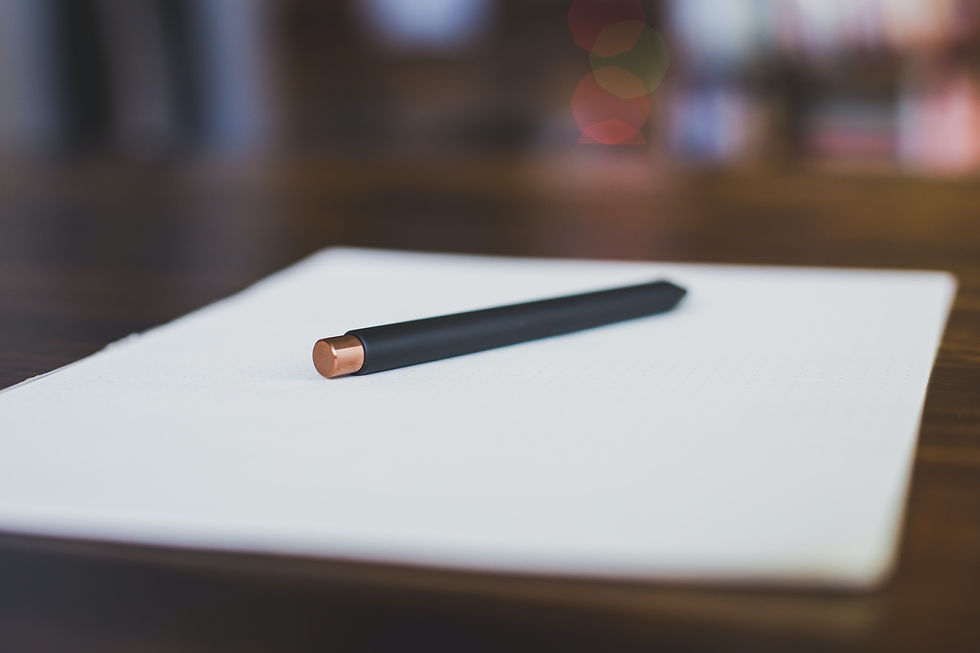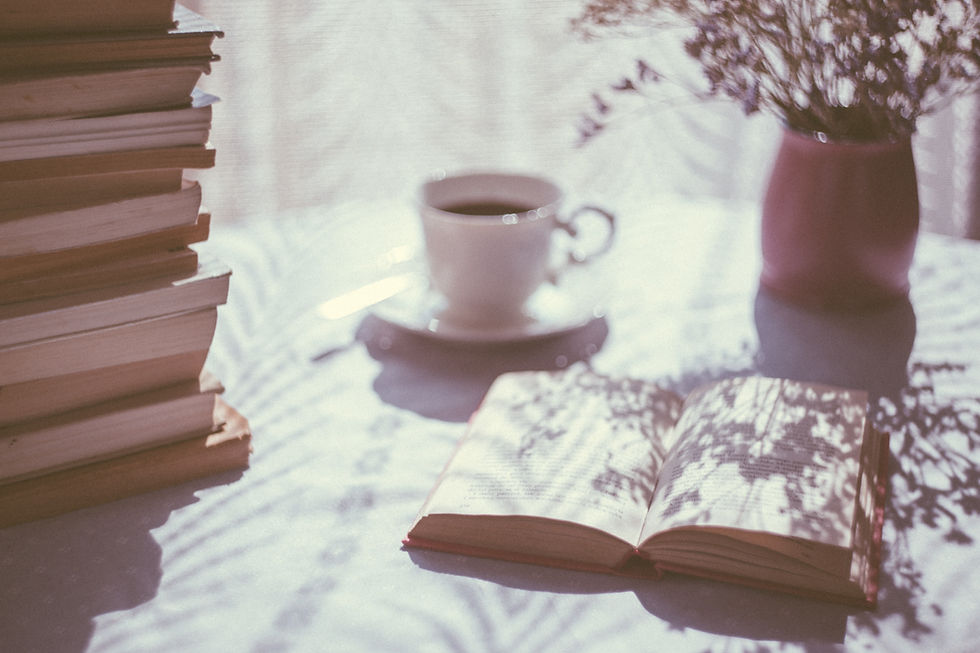Journaling for Well-being
- anu aiyer
- Nov 28, 2022
- 5 min read
Updated: Nov 29, 2022

Journaling as a daily ritual significantly impacts mental health and well-being. I call it a Ritual because, unlike Habits or Routines, they are not just regular and functional but also have meaning beyond their original intended purpose.
I journal to lead a more intentional, mindful, and productive life. This process also helped me reduce my anxieties and feel more contented. Here are the different types of journals I maintain and how they have helped me.
Bullet Journal

Ryder Carrol created Bullet Journal, which he describes as a mindfulness process disguised as a productivity system. I was interested in both. So I tried it for a few months and was hooked.
But my BuJo looks nothing like the colorful artwork typically seen on Youtube. I use it in its most basic form but effectively. I have experimented a lot and use a version that works very well for my purposes.
Bullet Journals are just flexible diaries. The dots offer the freedom to create your unique structure.
I track many habits. This creates self-accountability. I also collect a lot of information and sometimes even plot them on graphs. For instance, the hours of sleep can be correlated with my mood and body temperature helps me track periods and ovulation; tracking my weight alerts me when I am losing or gaining weight unusually, and tracking expenses gives many insights into our lifestyle, which leads to changes or adjustments.
It is a one-stop location for valuable data and information about my life. Individually the data don't mean much, but when I have a trend or a graph, the pattern and hidden subtexts emerge out of these numbers.
This also works as a diary and to-do list. I write down all information, tasks, and reminders I come across daily, from the smallest to the biggest. This ensures my mind is not overloaded with things that need remembering. Writing them down also makes me more accountable and intentional with them.
But the most significant benefit accrues when time is spent reflecting on the day. The 5 minutes set aside at the end of the day to think, reflect, and review is when mindfulness meets productivity. That's when I color the habit tracker, cancel and move forward items on to-do lists, add the notes for the day, and so on.
For it to work well, there can be no place for judgments. Instead of being harsh on ourselves over incomplete tasks, we can use this time to figure out 'why' or 'if' something is essential and how the job can be accomplished by avoiding procrastination. I tackle this by either breaking down a big daunting task into smaller achievable chunks or blocking the most productive time of my day to complete the job. Without a Bullet Journal, these tasks and their related anxieties will remain in my head, unaddressed. I would much rather have a cluttered notebook than a cluttered mind.
All of this can be done in any notebook and doesn't have to be in Bullet Journal. This is nothing new, every organized person probably does some version of this already.
I have also tried to give it up for a few months to see how it would affect my life. But I have realized that I am less overwhelmed by stuff and more consistent with my habits when I use the Bullet Journal.
Morning Pages

I heard about morning pages on a podcast, which led me to read the book "The Artist's Way" by Julia Cameroon. She asks you to write three pages of longhand, stream-of-consciousness writing first thing in the morning.
I tried it initially out of curiosity, but now I do it consistently as a part of my morning ritual.
It is like a best friend who listens to me rant about whatever is on my mind. It is not always a rant, though. It is just a place for my thoughts and ruminations. It is very calming, like meditation. It doesn't matter if it is written poorly, as I will be the only one who reads them
( also, my handwriting is so terrible, thankfully, that no one will ever attempt to decipher it :)
Reading my morning pages later gives me many insights into my issues and their roots, fears, hopes, dreams, etc.
It also led to many moments of epiphany, not necessarily while writing or every day, but they have been more frequent since I started morning pages. Things become much clearer once the gibberish has a place to go and settle down.
Gratitude Journal
According to several studies, there is a positive correlation between being grateful and a person's well-being. This convinced me to make it a part of my daily ritual.

I don't keep a separate gratitude journal. I combine it with my morning pages. I use gratitude as the writing prompt for my morning pages. Before I move on to stream-of-consciousness writing, I start my day with a positive thought of gratitude. This is also a way of habit-stacking.
I can't quantify the contribution of this habit to my well-being, but it has undoubtedly made it harder to take all the good things for granted. The process of writing them down is intentional and requires commitment.
It is, in any case, nice to be reminded of all there is to be grateful for before the day brings its share of worries, troubles, and complaints.
Capturing moments worth remembering.

It is worth noticing the small happy moments in our everyday life. If it is worth seeing, it is worth saving, like photographs. When I read them later, I get to remember and relive them.
I started doing this a few months ago. I read a book called Storyworthy by Mathew Dicks. This was listed in the tips for how to tell better stories. He calls it "Homework for life." What a perfect way to describe it.
His TED talk https://youtu.be/x7p329Z8MD0 on the topic is worth checking out.
It is incredible how quickly we forget all the little happy moments, funny and silly things kids say and do, conversations with friends, quiet moments of contemplation, etc. Our brain only remembers the highlights, both good and bad. This is my way of using a highlighter for life.
When I do this consistently, I notice that 'time' doesn't blur into a series of repetitive days.
I can recall the past month clearly, not just as work and weekends but punctuated by many noteworthy events and moments.
Once you start doing this regularly, you will notice more of such moments. Just as readily available phone cameras have made us notice and capture thousands of pictures, a pen or a note-taking app can provide many such moments. Maybe not thousands but at least a hundred :)
I use my Bullet Journal for this. In my daily view, I dedicate a few lines to capture such moments, and later when I find time, I expand on it. If I do this for the next ten years, there will be a treasure trove of memories to revisit.
These Journals have consistently improved my feeling of well-being in small but effective ways. If you love journaling or want to start, please leave a comment or message and share your experience with me.
A quick note about digital and physical Journals: all the Journals mentioned above can be online journals, apps (like Notion and Evernote), or Physical notebooks. I prefer pen and paper because writing by hand is a more mindful and intentional process. More importantly, it is not distracting. I like notebooks, especially for Morning pages and Bullet Journals.
But the best and most effective method is the one we are more likely to use. If writing with pen and paper is a source of friction, then it is better to do this in the most convenient mode, whatever it might be for each of us.

Well written anu! It’s a ritual indeed. I have never done that. Time has come to start this. Thank you for the insight.